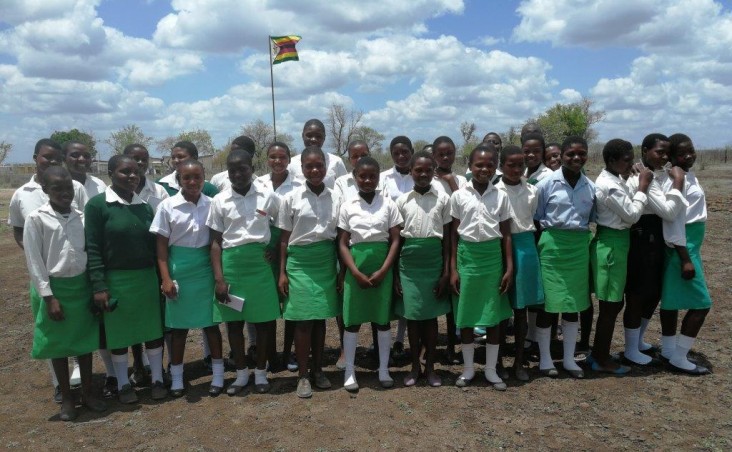Speeches Shim

December 2017—In a region characterized by poverty, child marriage, school dropouts and child abuse, adolescent girls are taking action to stay healthy and protect themselves from HIV.
On the eastern side of Zimbabwe, near the border with Mozambique, a school and the surrounding community are dramatically changing attitudes and social norms through the DREAMS initiative, which is funded by the U.S. President’s Emergency Plan for AIDS Relief through USAID. There, DREAMS is reaching thousands of parents, caregivers and students and making their dreams come true.
Under the initiative, nearly 400 households are participating in the Families Matter Program (FMP) in the villages of Mabee and Chinyamukwakwa, a marginalized area of Chipinge district. The program offers classes on parenting and family communication that focus on keeping children healthy and safe.
“I want to thank the DREAMS FMP for uplifting us,” said one parent, Junk Masongaimba, who completed the program. “We did not know the importance of keeping our girl children in school. Girls would drop out of school very early due to unwanted pregnancies and early child marriages. Children were also a source of labor in farming activities. Through parenting sessions, we can now better care for our own children. I now know education is empowering our children to realize their dreams, thereby escaping the devastating effects of child marriages.”
Tendai Taremba, a student at Mabee Secondary School, explained, “The program helped us a lot by teaching our parents to adopt a positive attitude towards educating the girl child.”
Charles Mahlahlayazi, headmaster of the Mabee Secondary School, reaffirmed the profound impact of the program on the school and community: “Since the introduction of DREAMS, Mabee Secondary is now enrolling more girls than boys. Before the intervention, girls constituted 40 percent of the students and boys 60 percent. In October 2017, the school total enrollment is 211, with 107 girls and 104 boys. Girls now outnumber boys!”
In this same community, four teenage mothers returned to school, and a young married woman in form three (equivalent to 11th grade in American schools) received support from her husband and in-laws to pursue her education. These achievements represent a breakthrough for young women in this community, as husbands and in-laws have not traditionally supported continuing education for young married women.
Another reason more girls are attending school now is the school’s sanitary pad project. With training through DREAMS, girls have learned how to make sanitary pads, improving attendance at school as girls no longer feel they need to stay home during menstruation. The girls have raised funds to purchase supplies and now sew the pads and distribute them for free to girls in need.
Through DREAMS, the school has also incorporated initiatives that address adolescent sexual and reproductive health as well as HIV and gender-based violence, which have had a remarkable impact on the school environment.
“DREAMS interventions eliminated stigma and discrimination in our school and community,” said Mahlahlayazi. “Our HIV-positive pupils are no longer ridiculed by schoolmates. Actually, they are being supported by schoolmates.”
Nearly 40 girls in Mabee and Chinyamukwakwa receive education subsidies through DREAMS to attend secondary school. The program is also providing nearly 500 impoverished households in the villages with cash transfers. Families use the cash for a variety of purposes including education-related costs, basic living expenses such as food, and income-generating material such as agricultural inputs.
Girls in this community are coming of age in a challenging environment. But the DREAMS initiative, which runs from 2015 to 2018, is empowering girls to resume or continue their education, maintain their health, and plan for their future with support from their school and families. Over the past two years, the DREAMS initiative in Zimbabwe has reached over 200,000 adolescent girls and young women with services to help them develop into Determined, Resilient, Empowered, AIDS-free, Mentored, and Safe women. The majority of these girls have received three or more services that will help reduce their vulnerability to HIV, ultimately improving their futures.
LINKS
Follow on Facebook

Comment
Make a general inquiry or suggest an improvement.